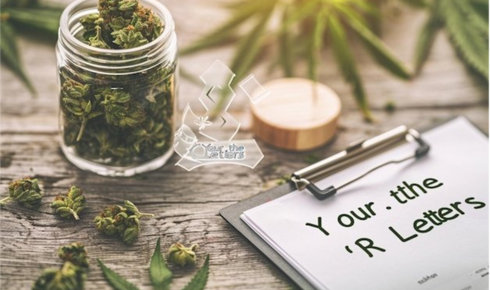Feeling anxious and overwhelmed? You’re not alone. Many people don’t realize they might qualify for a Free MMJ Card Online, especially if they’re veterans. This guide breaks down what you need to know in a clear, simple way.
Disclaimer
This is general guidance and not a professional opinion. Always consult a certified expert for advice on medical, legal, or financial issues.
What This Guide Covers
You are holding a roadmap. It takes you from basic questions, What is anxiety? Why would anyone need a special card? To the fine print of fees and paperwork. We keep the language simple, the paragraphs short, and the tone-friendly. By the end, you will understand how some people with anxiety may get a medical cannabis card free of charge and completely online.
A Quick Look at Anxiety
Most students have felt the night‑before‑the‑exam jitters. But clinical anxiety is different. It can stick around all day, turn quick worries into long loops, and make sleep hard. Doctors describe it as a mental health condition that affects thoughts, feelings, and sometimes even body signals like rapid heartbeats.
Key takeaway: Anxiety disorders are recognized by many state health boards. Because of that, they can appear on lists of conditions that qualify for medical cannabis access.
MMJ Cards Explained
An MMJ card, short for medical marijuana card, is a document from a licensed clinician that tells dispensaries you may legally buy medical‑grade cannabis. Every state sets its own rules for age limits, purchase amounts, and approved products. Some states call the card a “written certification” because the doctor states that matter most.
Is Anxiety a Qualifying Condition?
Rules change from state to state. Many programs list chronic pain, epilepsy, or cancer‑related nausea. Anxiety shows up in some guidelines as either ‘GAD’ or ‘PTSD with anxiety features.’ If your local standards reference it, talk to your certifying healthcare provider.
Big Rule Changes You Should Know
Virginia is a strong example. Until mid‑2023 the state Board of Pharmacy oversaw patient registration. Today that job belongs to the Virginia Cannabis Control Authority. Even better, patients no longer mail paperwork to Richmond. All they need is the written certification from a registered provider. Once signed, patients can visit a licensed dispensary the same day. (That one‑line note covered it!)
Free MMJ Card Online Programs
“Free” sounds too good, so let us break it down. A few telehealth groups waive consultation fees when patients meet certain hardship criteria. They might refund your money if the doctor does not sign, or they might get grant money that covers the bill. You still pay for your medicine at the store, but the card itself costs zero dollars in upfront doctor fees. Because the meeting happens on video, the whole process feels like ordering a pizza: quick clicks, short wait, no driving.
Why do programs offer this deal
- Community outreach budgets
- Partnerships with nonprofits
- Marketing campaigns that lower first‑time barriers
Before booking, read the fine print. Some clinics advertise “free” but only credit you later. Others are truly no‑cost from the start.
Free MMJ Card For Veterans
Veterans face unique hurdles. Many live on fixed incomes and travel long distances for care. Several states and private groups acknowledge this struggle. They run projects that do the following:
- Cover appointment fees. Grant funds pay the clinician.
- Help with travel. Some programs mail the card or hold mobile clinics at VA centers.
- Offer peer support. Fellow veterans guide applicants through paperwork.
If you served in the armed forces, search for local nonprofits or county veteran service offices. Ask directly about the “free MMJ card for Veterans” programs. Requirements usually include military discharge papers and proof of residency.
Step‑by‑Step: How to Apply Online
Use this nine‑step checklist:
- Check State List: Visit your Department of Health website. Confirm anxiety is on the qualifying list.
- Gather Basic Proof: Driver’s license or state ID, plus medical records that show anxiety diagnosis notes.
- Pick a Telehealth Clinic: Look for licensed providers, clear pricing, and transparent refund rules.
- Create an Account: Enter your name, address, and sometimes a short health questionnaire.
- Upload Documents: Scan or photo your records. Make sure dates and doctor signatures are visible.
- Attend the Video Call: Use a quiet room. Speak honestly about symptoms and previous treatments.
- Receive Your Certification: Many clinics email it within hours. Convert it to a PDF and print it out.
- Visit a Dispensary: Show your ID and certification. Staff will register you in their system.
- Renew When Needed: Mark your calendar. Most states set card validity at twelve months.
Tips for a Smooth Consultation
- Practice Your Points: Write three examples of how anxiety affects your daily life. Clear stories help clinicians understand the severity.
- Stay Honest: Over-or-under-stating symptoms can hurt your case. Straight facts serve you best.
- Check Your Tech: Test camera, microphone, and internet speed. A frozen screen may force a reschedule.
- Keep Questions Ready: Ask about dosage forms, potential side effects, and follow‑up policy.
Common Mistakes and How to Avoid Them
| Mistake | Result | Quick Fix |
| Missing ID or records | Appointment delay | Upload files the day before |
| Using expired ID | Certification denied | Renew license first |
| Skipping state research | Not eligible | Read official site section on qualifying conditions |
| Ignoring the renewal date | Card becomes invalid | Set a phone reminder four weeks before the expiry |
Frequently Asked Questions
Q1. How long does an online appointment last?
Most video calls take 10 to 20 minutes. Extra time may be needed if records are unclear.
Q2. Are online clinics legal?
Yes, as long as the provider holds an active state license and follows telemedicine laws.
Q3. Can teenagers apply?
Some states allow it with parent or guardian approval. Age cutoffs vary. Read local statutes.
Q4. What if the doctor says no?
Reputable services refund your fee or refer you to a specialist. You can also get a second opinion.
Q5. Does the card mean free medicine?
No. The phrase “Free MMJ Card Online” refers to the consultation cost, not the product price at the counter.
Q6. Do veterans need special proof?
Usually, a DD‑214 form or veteran ID card will work. Some programs ask for service‑connected disability paperwork.
Q7. How private is my data?
Clinics must follow HIPAA rules. Your information is encrypted and shared only with the necessary medical staff.
Q8. Will having an MMJ card affect school or job drug policies?
Possibly. Private institutions can set their own rules. Always read handbooks and employee manuals.
Q9. Can I travel across state lines with products?
Federal law bars transporting cannabis. Plan to consume only where it is legal and safe.
Important NOTE!
Anxiety can make life feel like a never‑ending pop quiz. But knowledge eases the pressure. Now you know how a medical cannabis card works, why some applicants pay zero dollars, and what special help exists for veterans. Take your time, follow each step, and keep all paperwork tidy. With patience and good information, the online path to an MMJ card is straightforward.
Remember: Every rulebook changes over time. Bookmark official state pages and set calendar alerts for updates. Education today prevents confusion tomorrow!

